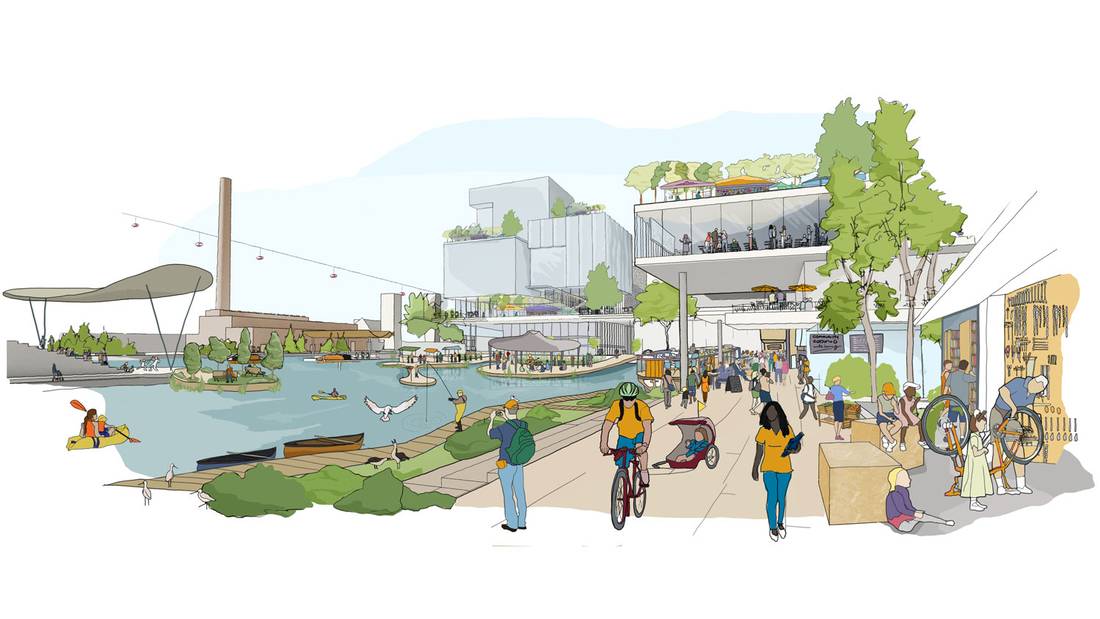
There can be no argument that improving city infrastructure – neighbourhood design, people movement, large scale public and private spaces – is hard. The scale needed to test new ideas and ways of thinking require a lot of physical space, buy in from multiple groups and money.
This limits the number of companies that can work with local or regional government. But, change at this level is needed to stop recreating the same office buildings and condos and really look at how neighborhoods and communities can work better for the people that need to use them.
The need to blend work, home and public spaces in new ways allows for fundamental changes in the day-to-day activities for the average person.
This is what makes the announcement from Sidewalk Labs about Toronto’s waterfront so exciting. This first phase is meant to prove the idea, by rethinking an entire city block as the new Canadian head office for Google.
The really exciting part is the potential phase two that would transform 750 acres of Toronto waterfront into a neighbourhood that blends work and home spaces, generates it’s own power, uses autonomous vehicles for deliveries, monitor and reroute people to avoid congestion.
This is one, but not the only, example. This level of change must involve private corporations to jump in to offer level of disruption needed.
Having a connected neighbourhood that can leverage AI systems to monitor and improve how you live you life can allow for some amazing changes. However, before you pack up and move in you need to ask, what else is the private corporation doing with the data they collect about you.
The level of data collection would be much greater than anything we face today. From leveraging WiFi or internet access; to knowing where you are at any moment; to learning how you move during the day and what you spend your money on.
With the right awareness and oversight over the data, this can be a fantastic opportunity to change and improve things you do everyday. Just be sure to ask what happens when a corporation has the power to listen and watch when they want.
